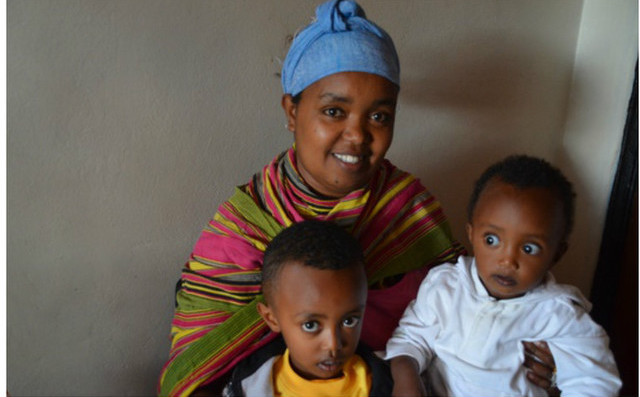 Hani Wondwesen is waiting with two children at a clinic in Addis Ababa where they will have pediatric appointments (Ankita Rao/Kaiser Health News)
Hani Wondwesen is waiting with two children at a clinic in Addis Ababa where they will have pediatric appointments (Ankita Rao/Kaiser Health News)
Hermon Girma is stirring bean stew over a wood-fed stove when she hears someone at the gate. She sends her 3-year-old son to slide open the piece of corrugated metal that separates her home and others from the cobblestone street in Kirkos, a neighborhood in Ethiopia’s burgeoning capital city, Addis Ababa.
Tigist Seyoum, a sturdy 35-year-old woman with a large black purse and cornrowed braids, leans down to kiss the boy’s cheek as she enters. The community health worker and the boy’s mother sit on a sofa in the Girmas’ home—two tidy, small rooms crammed with furniture. They chat about neighborhood gossip and the family’s health, including checking on birth control prescriptions.
Community health workers like Seyoum have helped Ethiopia reduce child mortality by two-thirds since 1990 and death from malaria, a common disease, by 55 percent. Since their deployment, contraception use among women—from longer-lasting injections to daily birth control pills—has doubled from 15 to almost 30 percent in six years.
Read more at The Atlantic.
—
Join the conversation on Twitter and Facebook.

























